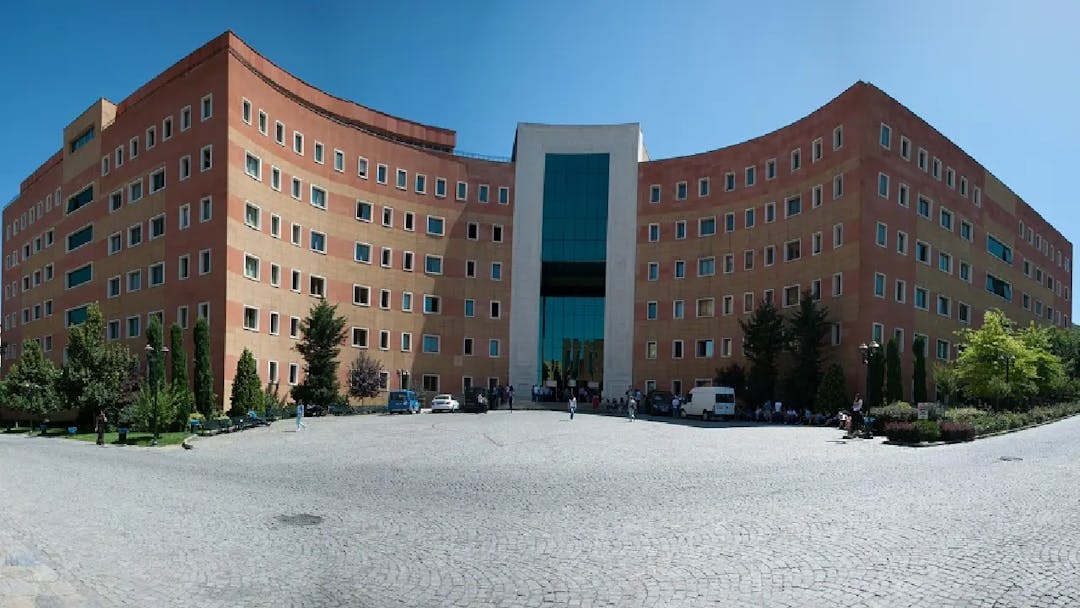About Major Sociology In Turkey
About Major Sociology In Turkey
The Requirement Sociology In Turkey
Frequent Question Sociology In Turkey
Apply Now!
University Available Sociology In Turkey
About Major Sociology In Turkey

An overview of Sociology:
Sociology is a branch of social science concerned with the study of social phenomena and structures. Sociology is concerned with understanding how social factors influence individual and group behavior, and how societies are shaped and develop. It relies on different theories to understand social interactions. It seeks to improve social conditions and enhance understanding among members of society. Areas of study of sociology include diverse topics and concepts such as community identities, social classes, social interactions, social change, social policy, demography, religion, gender, culture, identity, crime, and human development, And many more. Sociology researchers rely on different research methods such as observation, interviews, surveys, and document analysis to understand social interactions and explain social phenomena.
Sociology arose as a response to social transformations in the nineteenth century. Philosophers began to develop ideas about social relations. Studies of social change and cultural transformations flourished in the post-World War II period. In the modern era, sociology has been influenced by technology and globalization, with a diversity of topics including identity and the environment. Sociology plays a vital role in understanding contemporary social changes.
Sociology uses a wide range of research methods to collect and analyze data, including field studies, questionnaires, interviews, and data analysis. This science aims to analyze patterns, have a deeper understanding of social interactions, and work to improve social conditions.
Why study Sociology in Turkey?
If you are considering studying sociology, Turkey offers you a unique educational opportunity thanks to the latest developments in this field. Turkish universities strive to provide advanced education in line with international standards, and make great efforts to provide all the necessary resources to support students in the field of sociology and enhance their academic and professional success.
Here are some reasons why students may choose to study in Turkey for this major:
- Universities with an international reputation: Turkey has a number of prestigious universities that are recognized internationally, and which feature advanced research centers in sociology. Private universities invest in advanced facilities and modern technologies to support research and innovation in this field.
- Experienced Professors: Faculty members at Turkish universities excel in their ability to conduct advanced research and develop new applications in sociology, as well as analyze the latest methods and models in the field.
- Cultural Diversity: Turkey combines ancient heritage with modern development, where Eastern and Western cultures meet, allowing international students to experience a multi-dimensional culture during their studies.
- Research and innovation environment: dynamic programs adapted to Recent changes and developments in the sociology sector and technological research, this creates a suitable environment for studying sociology and innovation in this discipline.
- Reasonable cost of living: Compared to many other countries, Turkey is considered a budget destination thanks to its affordable cost of living, making it an attractive option for international students.
Overall, Turkey offers an exciting and attractive environment for studying in the field of sociology, and is increasingly popular among international students researching the field of sociology.
Skills needed to study Sociology:
Studying sociology requires a set of skills that students are supposed to acquire to ensure a comprehensive understanding of social phenomena and apply theories effectively. Here are some skills needed:
- Analytical thinking: The ability to analyze and understand social phenomena through critical thinking and information analysis.
- Research and data collection: Good skills in collecting and analyzing data through various research methods and relying on reliable sources.
- Critical reading: The ability to read articles and research in a critical manner and understand different theories and concepts. in sociology and writing analyzes and reports.
- Effective communication: the ability to express ideas and concepts with individuals clearly and effectively, whether in writing or speaking.
In short, studying sociology requires a comprehensive set of mental and social skills to have a deep understanding of society and analyze its interactions.
The average annual salary for beginners to a major is Sociology $65,000
The Requirement Sociology In Turkey
Passport
Personal photo
Toefl
High school diploma
High school transcript
Frequent Question Sociology In Turkey
What is Sociology?
Sociology is a branch of social science that focuses on the study of social interactions and phenomena in societies. It aims to understand the social behavior of individuals and the impact of the social environment on it. Areas of study include social class, social change, identity, and culture. It relies on various research methods such as field studies and interviews.
It seeks to analyze and explain the interactions between the individual and society. It plays a role in improving social conditions and promoting a deeper understanding of communities.
It relies on multiple theories to explain social phenomena. It contributes to directing social change and developing social policies.
What is the importance of Sociology?
Sociology is considered one of the main tools for explaining social diversity and the transformations that occur in societies. It contributes to understanding the forces that influence people and how people influence the social environment around them. Which helps improve social life and understanding among community members.
What is the aim of Sociology?
Sociology aims to understand how individuals interact with each other whether in small contexts such as families and groups, or in larger contexts such as institutions and societies, and how social structures and laws affect the individual and society. Sociology contributes to understanding social changes and their impact on the individual and society, and helps in developing social policies and strategies to improve the quality of life in societies.
What is the history of Sociology?
The history of sociology extends over multiple stages of time, and is the result of the social and intellectual transformations that societies have witnessed. Below is a brief overview of the development of sociology:
- Middle Ages: Societies were influenced by philosophy and theology, but there was little interest in studying social structures.
- The seventeenth and eighteenth centuries: witnessed thinking about social relations and the influence of institutions.
- Early nineteenth century: Sociology emerged as an independent scientific discipline during this period. He established the term "sociology" and focused on understanding social developments and studying social phenomena in a scientific manner.
- The late nineteenth century: witnessed the development of theories of social evolution, and laid the foundation for the functional approach to understanding society.
- The beginning of the twentieth century: witnessed a development in social research methods and their focus on studying classes and crime, with the emergence of modern theories such as separation theory and engagement theory.
- Post-World War II: Social theories have evolved in diversity, with increasing interest in cultural and gender studies.
- Modern era: Sociology continues to develop, taking into account contemporary social and technological transformations. Globalization has affected the nature of social interactions.
The history of sociology is characterized by a gradual development that reflects the growing interest in understanding social phenomena and their effects on society.
What do Sociology graduates do?
Sociology graduates possess a wide range of skills and knowledge that enable them to work in various fields. Some of the jobs that sociology graduates may work in include:
- Social Research: They can work as social researchers to understand and analyze social phenomena.
- Social Policy: They can work in developing and evaluating social policies in government or non-governmental organizations.
- Social development: They can work in designing and implementing social development projects to support communities and improve living conditions.
- Social Administration: They can work in the field of social administration to coordinate social services and health care.
- Teaching and training: They can work as teachers in higher education institutions or as trainers in vocational training.
- Mental Health and Counseling: They can work in the field of mental health and counseling to help individuals and families deal with social challenges.
- Media and Journalism: They can work in journalistic writing or work in the media.
- Human Resources: They can work in the field of human resources to understand social dynamics in the work environment and improve social relations in organizations.
- Market Research: They can work in understanding consumer behavior and related social dynamics in the market research industry.
These examples show the wide variety of job fields in which sociology graduates can work, and the choice of job depends on their interests and specific specializations.
University Available Sociology In Turkey

Istanbul Aydin
Language
Turkish
Tuition fees (Schedule)
$4000


Bahçeşehir
Language
English
Tuition fees (Schedule)
$8500


Istanbul Bilgi
Language
English
Tuition fees (Schedule)
$5032


Altınbaş
Language
English
Tuition fees (Schedule)
$3500


Istanbul Gelisim
Language
Turkish
Tuition fees (Schedule)
$3500


Üsküdar
Language
Turkish
Tuition fees (Schedule)
$3260


Istanbul Okan
Language
Turkish
Tuition fees (Schedule)
$0


Istanbul Nişantaşı
Language
Turkish
Tuition fees (Schedule)
$2950


Istanbul Arel
Language
Turkish
Tuition fees (Schedule)
$3500


Istanbul Esenyurt
Language
Turkish
Tuition fees (Schedule)
$2200


Maltepe
Language
English
Turkish
Tuition fees (Schedule)
$0
$0


Yeditepe
Language
English
Tuition fees (Schedule)
$0

| University | Language | Tuition fees (Schedule) |
|---|---|---|
| Istanbul Aydin | Turkish | $4,000 |
| Bahçeşehir | English | $8,500 |
| Istanbul Bilgi | English | $5,032 |
| Altınbaş | English | $3,500 |
| Istanbul Gelisim | Turkish | $3,500 |
| Üsküdar | Turkish | $3,260 |
| Istanbul Okan | Turkish | - |
| Istanbul Nişantaşı | Turkish | $2,950 |
| Istanbul Arel | Turkish | $3,500 |
| Istanbul Esenyurt | Turkish | $2,200 |
| Maltepe | English | - |
| Maltepe | Turkish | - |
| Yeditepe | English | - |